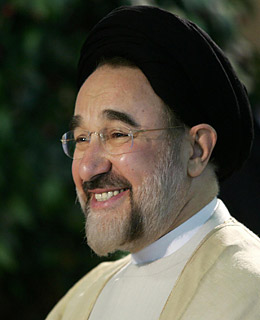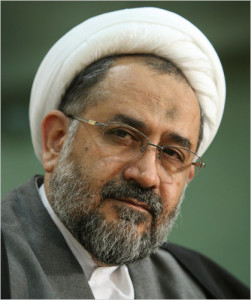May 16-2014

Former Intelligence Minister Heydar Moslehi has publicly accused former President Mohammad Khatami of being behind the street protests that raged in Tehran for months after the 2009 presidential elections.
Moslehi became intelligence minister August 5, 2009, after the bulk of the protests had been crushed, although some continued for months into his term.
In an interview with the Fars news agency, Moslehi surprisingly charged that Khatami was “leading and guiding” the post-election protests, painting him as a more important figure than either of the losing candidates, Mir-Hossain Musavi and Mehdi Karrubi, who have been under house detention for their alleged roles in sparking the protests.
Moslehi was quoted as saying that Khatami’s role in the disorders was “completely calculated,” though it was not explained for what it was calculated.

Moslehi said a number of hardliners had called for Khatami’s arrest. There was some muttering at the time heard from hardliners that Khatami was to blame for disorders along with Musavi and Karrubi, but the complaints never received major public attention.
Moslehi, however, said “the system” did consider confining Khatami under house arrest, but in the end decided not to do that.
Moslehi did not say why house arrest was rejected, but it could be assumed the “system” feared that might actually spark even more disorders in the streets.
Khatami, 70, is now rarely seen in public or quoted in the media. He seems to be treated as a non-person by Supreme Leader Ali Khamenehi.
However, he had a prominent role in the weeks leading up to the 2013 presidential election along with his predecessor, Ali-Akbar Hashemi-Rafsanjani. The two men are believed to have pressured the main Reformist candidate, Mohammad-Reza Aref, to withdraw; they then both publicly endorsed Hassan Rohani. Polls showed Rohani’s public support, which had been in single digits, soared in the following days.
